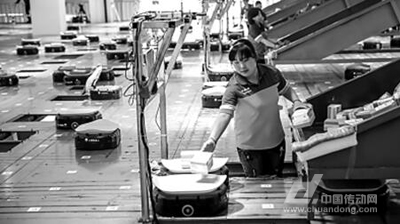Artificial Intelligence (AI) is a rapidly evolving field within computer science, often regarded as one of the most transformative technologies in modern times. Since the 1970s, it has continuously evolved, enabling smart devices to transition from simply understanding the physical world to delivering personalized experiences. In recent years, AI has become a key driver for increasing productivity and creating innovative products and services, making it essential for economic competition and industrial transformation. One of the major impacts of AI is its role in fostering innovation in the real economy. As the backbone of national strength and people's livelihood, the real economy requires continuous development and modernization. The integration of AI into traditional industries has introduced new energy and efficiency. From healthcare to retail, finance to education, AI technologies such as natural language processing (NLP), computer vision, and voice recognition are reshaping business models and enhancing operational efficiency. For instance, in healthcare, AI leverages deep learning algorithms to improve diagnostic accuracy and service efficiency. It can analyze medical images using computer vision and interpret patient symptoms through NLP, significantly improving both the speed and quality of care. AI is also driving industrial restructuring and upgrading. As more traditional sectors adopt AI, they are finding new ways to optimize processes and boost productivity. Government initiatives like the "New Generation Artificial Intelligence Development Plan" emphasize the need to develop AI-driven industries, including intelligent software, robotics, and IoT solutions. These innovations are helping key sectors such as manufacturing, agriculture, logistics, and finance to move toward smarter, more efficient operations. By replacing or collaborating with human workers, AI-powered machinery is revolutionizing design, production, and service delivery, reshaping entire supply chains and value creation models. Smart manufacturing is another area where AI is making a significant impact. As a high-tech industry, smart manufacturing plays a crucial role in enhancing a nation’s competitive edge. The integration of AI into manufacturing processes—from smart workshops to intelligent ecosystems—has led to higher productivity and better service quality. According to a 2017 report, China aimed to build a comprehensive smart manufacturing system by 2020, with expected revenue from smart equipment exceeding 3 trillion yuan. This growth highlights the vast potential of AI in shaping the future of global manufacturing. In 2016, the “Internet+†AI three-year action plan was launched by several government agencies, aiming to establish a solid foundation for AI in industry, services, and standards by 2018. The goal was to achieve breakthroughs in core technologies, nurture leading AI companies, and create a market worth over 100 billion yuan. Looking ahead, AI will be deeply embedded in various fields, including defense, agriculture, finance, and public safety. Its applications will become widespread, driving data integration, human-machine collaboration, and cross-sector innovation, ultimately building a shared smart economy. From smart homes and cities to smart governments and global systems, AI is redefining how we live and work. It is not just a technological advancement but a transformative force that is reshaping human civilization, following the footsteps of the industrial, electric, and information ages. As AI continues to evolve, its influence on society and the economy will only grow, paving the way for a smarter, more connected future. High Purity Copper Clad Copper,Copper Clad Copper Bare Copper Wire,Double Layer Bare Copper Wire ,Electroplated Copper Clad Copper Core Wire changzhou yuzisenhan electronic co.,ltd , https://www.ccs-yzsh.com